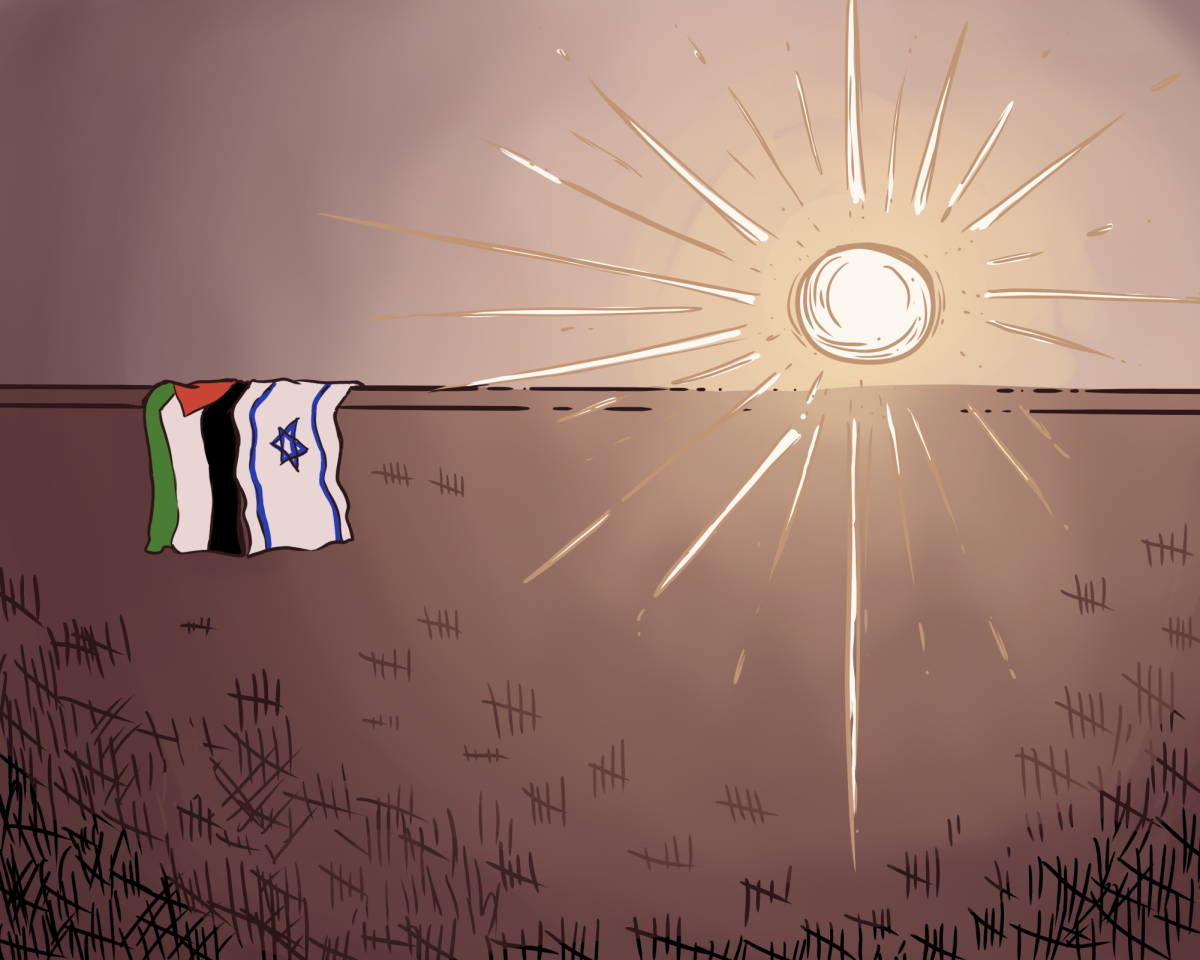In the 100 days since the Oct. 7 Hamas attack and Israel’s subsequent invasion of Gaza, Arab, Muslim and Jewish students said the ongoing conflict has taken a toll on their mental health, exacerbated by feeling unsafe on campus.
Anti-Semitism and Islamophobia have been on the rise in the U.S. since Oct. 7. The Anti-Defamation League reported a 360% increase in anti-Semitic incidents, and the Council on American-Islamic Relations recorded a 216% increase in Islamophobia.
Rabbi Stephanie Max, Hillel’s executive director, said there is an atmosphere of anxiety on campus for Jewish students.
“We’re grateful to have relationships with University and security partners that are open and center our students’ wellbeing and safety,” Max said in an email statement.
Samuel Weiss, the Jewish Interfaith Coordinator for Atidna International, said the lasting trauma from Oct. 7 on the Jewish community has faded from public view in the past 100+ days. Weiss lost several friends on Oct. 7 and some of his friends personally know some of the hostages held in Gaza.
“The suffering of the Jewish community does not delegitimize or take away from the suffering of anyone else, but it is there,” Weiss said.
Muslim and Arab students also experienced Islamophobia on Oct. 12 when three men disrupted a Palestine Solidarity Committee meeting on campus and called its members “terrorists.”
The University never issued a statement directly addressing the incident, causing some to feel “abandoned by the system,” said Hadi Noureddine, an Arab Student Association board member. He said in the last 100 days, it’s become normal for Arab students to feel on edge.
Noureddine’s family, based in southern Lebanon, has been impacted by Israeli bombings, but Noureddine said they are adamant to stay unless it becomes absolutely necessary to evacuate. Their determination to stay gives him hope for the greater Palestinian cause, he said.
“They’re very stubborn people,” Noureddine said. “I don’t think our trees are easily uprooted from our land.”
Weiss said increasing radicalism on all sides promotes an unsafe campus environment and makes it difficult for Atidna to fulfill its purpose of uniting Jewish and Arab voices.
“People are not looking to find a middle ground and come together right now,” Weiss said. “I don’t blame them at all and I totally understand, but I think it’s unproductive and I think it’s dangerous.”
Ammer Qaddumi, a PSC steering committee member, said he finds solace in organizing events like protests for Palestine. Although Qaddumi does not have family in Gaza, he has family in the West Bank who were impacted by Israeli raids.
“We do have some agency, and we’re not helpless to what is happening,” Qaddumi said. “I think that aspect of not being helpless is something that’s given me a lot of comfort.”
In the past 100 days, student advocacy has taken on a new role in raising awareness and mobilizing public opinion. PSC has been able to build coalitions with other like-minded groups in Texas and across the nation, which Qaddumi said was a great development for the organization.
In addition, Max said Texas Hillel remains steadfast in “empowering every Jewish student to make an enduring commitment to Jewish life, learning and Israel.”
For Maria Muñoz, an international relations and global studies senior who lost several friends on Oct. 7, a recent nine-day visit to Israel and Palestine took an emotional toll, but provided a new perspective on the ongoing war. She visited Kfar Aza, a kibbutz near the Gaza border that Hamas attacked on Oct. 7, and spoke to Palestinians in the West Bank.
“We need to look at the pain all around,” Muñoz said. “We can’t just focus on the pain on one side, and that’s what I have always emphasized.”
Editor’s Note: This story was updated to correct the website for Atidna International. The Texan regrets this error.





















